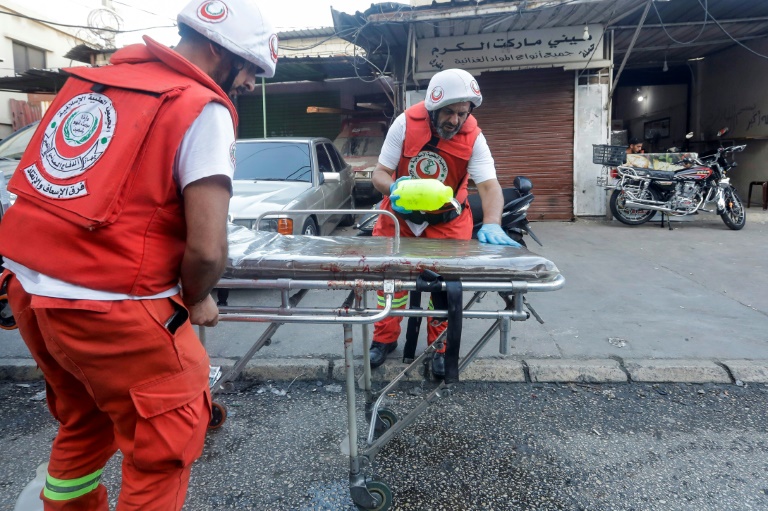Violence in Lebanon Palestinian camp wounds 20

Families have fled Ain al-Helweh in south Lebanon as a fresh outbreak of violence rocked the Palestinian refugee camp
Sidon – Clashes in a Palestinian refugee camp in south Lebanon have left 20 people wounded, official news agency NNA reported Friday, weeks after a deadly outbreak of violence rocked Ain al-Helweh.
The fighting late Thursday in the camp, which is located on the outskirts of the coastal city of Sidon, once again pitted members of Palestinian president Mahmud Abbas’s Fatah movement against Islamist militants.
An AFP correspondent in Sidon reported the sound of intermittent automatic weapon fire and rocket launchers emanating from within the camp on Friday morning.
Dozens of families with children fled on Thursday evening from the camp’s northern end where the clashes were concentrated, and some took shelter in a nearby mosque, the correspondent added.
NNA reported “intensive contacts made between Lebanese and Palestinian leaders” in a bid to restore calm.
Ain al-Helweh is home to more than 54,000 registered refugees. It was created for Palestinians who were driven out or fled during the 1948 war that coincided with Israel’s creation.
Thousands of Palestinians who sought refuge from Syria’s civil war have also joined the camp in recent years.
In the worst outbreak of violence in years, five days of clashes that began in late July left 13 people dead and dozens wounded in Ain al-Helweh.
By long-standing convention, the army does not enter Palestinian refugee camps — now bustling but impoverished urban districts — leaving the factions themselves to handle security.
The July violence erupted after the death of an Islamist militant, followed by an ambush that killed five Fatah members including a military leader.
A joint committee of Palestinian factions in the camp had given the Islamist group a Thursday deadline to hand over the fighters involved in the ambush, but it did not comply.
Lebanon hosts an estimated 250,000 Palestinian refugees, according to UNRWA, the United Nations’ agency for Palestinian refugees.
Most live in one of Lebanon’s 12 official camps, and face a variety of legal restrictions, including on employment.
